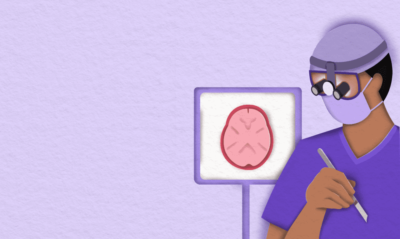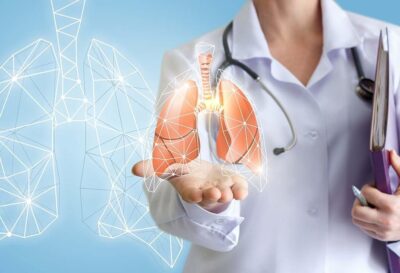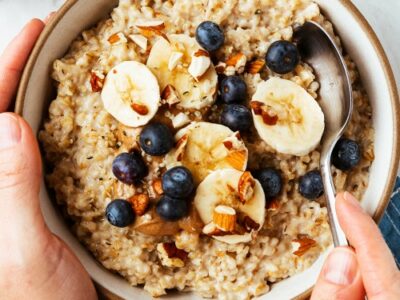When it comes to achieving your fitness goals and sculpting the body of your dreams, exercise, and nutrition are crucial, but there’s another essential player in the game of muscle development: hormones. These biochemical messengers wield incredible power in determining your muscle growth potential. This comprehensive guide will delve into the fascinating world of hormones and their pivotal role in helping you build lean, strong muscles. It will also take a brief look at GH secretagogues like mk677 for sale and how they work.
Table of Contents
Understanding the Hormonal Mechanism
Picture your body as a finely tuned orchestra, with each hormone playing a distinct instrument, contributing to the harmony of muscle growth. One of the most influential hormones in this orchestra is the Growth Hormone (GH), also known as somatotropin. GH is produced by the pituitary gland and plays a pivotal role in cell growth and regeneration, including muscle tissue.
GH is often referred to as the “master hormone” because it stimulates the production of insulin-like growth factor-1 (IGF-1), another hormone with potent anabolic effects on muscles. Together, GH and IGF-1 promote the growth and repair of muscle fibers, leading to increased muscle mass and strength.
GH Secretagogues
While GH is naturally produced by the body, some individuals seek ways to boost its levels to enhance muscle growth. One such option is MK677, a GH secretagogue. MK677 stimulates the release of GH by mimicking the action of ghrelin, a hormone that signals the body to release GH. MK677 for sale has gained attention in the fitness and bodybuilding community for its potential to support muscle growth and improve recovery.
The Hormonal Trifecta
GH and IGF-1 are not the only hormones at play when it comes to muscle growth. Testosterone, often associated with masculinity, is another crucial hormone in the muscle-building process. Testosterone promotes muscle protein synthesis, which is the creation of new muscle fibers, as well as the repair of damaged ones. This hormone also plays a key role in increasing muscle strength and enhancing overall athletic performance.
Insulin, primarily known for regulating blood sugar levels, also plays a vital role in muscle growth. It helps transport nutrients, including glucose and amino acids, into muscle cells, providing them with the necessary building blocks for growth and repair.
The Importance of Balanced Hormones
Achieving optimal muscle growth requires a delicate hormonal balance. Too much or too little of certain hormones can hinder your progress. For example, excessive cortisol, the stress hormone, can lead to muscle breakdown and hinder muscle recovery. Chronic stress, lack of sleep, and poor nutrition can contribute to elevated cortisol levels, so it’s essential to manage these factors for optimal muscle development.
Balancing hormones can be challenging, but it’s essential to focus on holistic health practices. According to eMule Anleitung Adequate sleep, stress management, a nutrient-rich diet, and regular exercise are all vital components of maintaining hormonal harmony.
Nutrition and Hormonal Support
To support your muscle growth journey, pay close attention to your diet. Protein intake is of utmost importance, as amino acids are the building blocks of muscle tissue. Aim for a balanced diet that includes lean proteins, complex carbohydrates, and healthy fats. Also, consider incorporating foods rich in vitamins and minerals like zinc, magnesium, and vitamin D, which are known to support healthy hormone production.
In addition to proper nutrition, stay hydrated. Dehydration can negatively affect hormone balance and impede muscle recovery. Aim to drink enough water throughout the day to keep your body functioning optimally.
Exercise as a Hormonal Trigger
Exercise, especially resistance training, acts as a powerful hormonal trigger for muscle growth. When you engage in weightlifting or resistance exercises, your body responds by releasing hormones like GH and testosterone to help repair and strengthen your muscles.
To maximize the hormonal benefits of exercise, focus on compound movements that target multiple muscle groups. Squats, deadlifts, bench presses, and pull-ups are excellent examples of compound exercises that can stimulate significant muscle growth.
Rest and Recovery
While exercise is crucial, so is rest and recovery. Overtraining can lead to elevated cortisol levels, muscle fatigue, and decreased muscle growth. Ensure that you allow your muscles sufficient time to recover between workouts and prioritize quality sleep to support hormone production and muscle repair.
Conclusion
In your quest for muscle growth, understanding the role of hormones is essential. Growth Hormone (GH), testosterone, insulin, and other hormones act as the conductors of your muscular symphony. They dictate how efficiently your body builds, repairs, and strengthens muscle tissue.
By nurturing your hormonal orchestra and maintaining a holistic approach to health and fitness, you can unlock your full potential and sculpt the physique you’ve always desired. It’s not just about lifting weights; it’s about harmonizing the hormones that drive your muscle growth.









Comments on "The Role of Hormones in Muscle Growth: A Comprehensive Guide" :